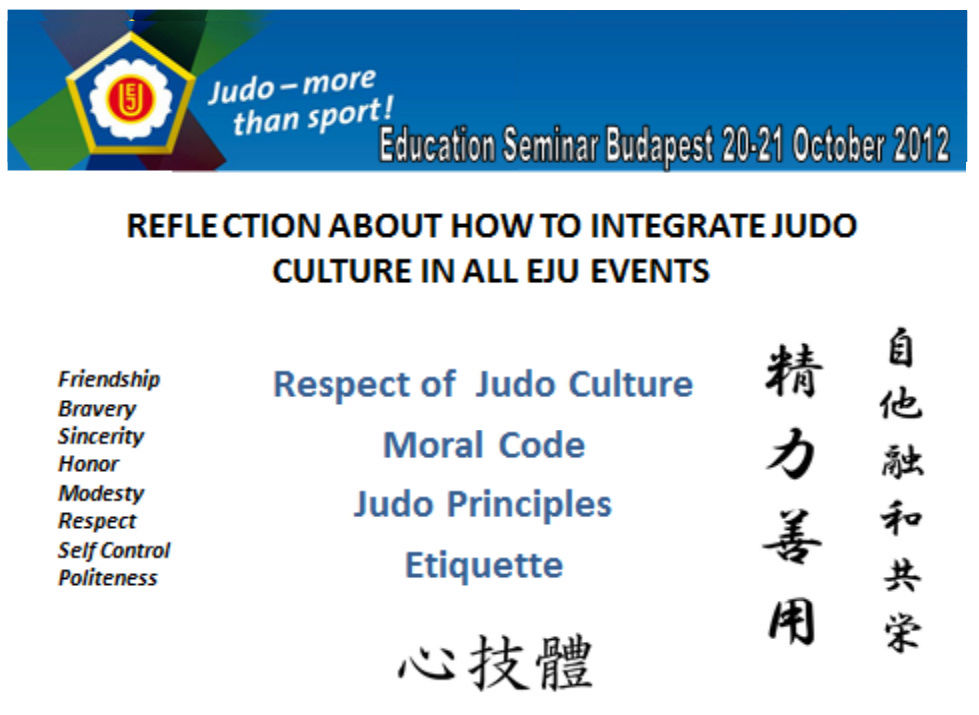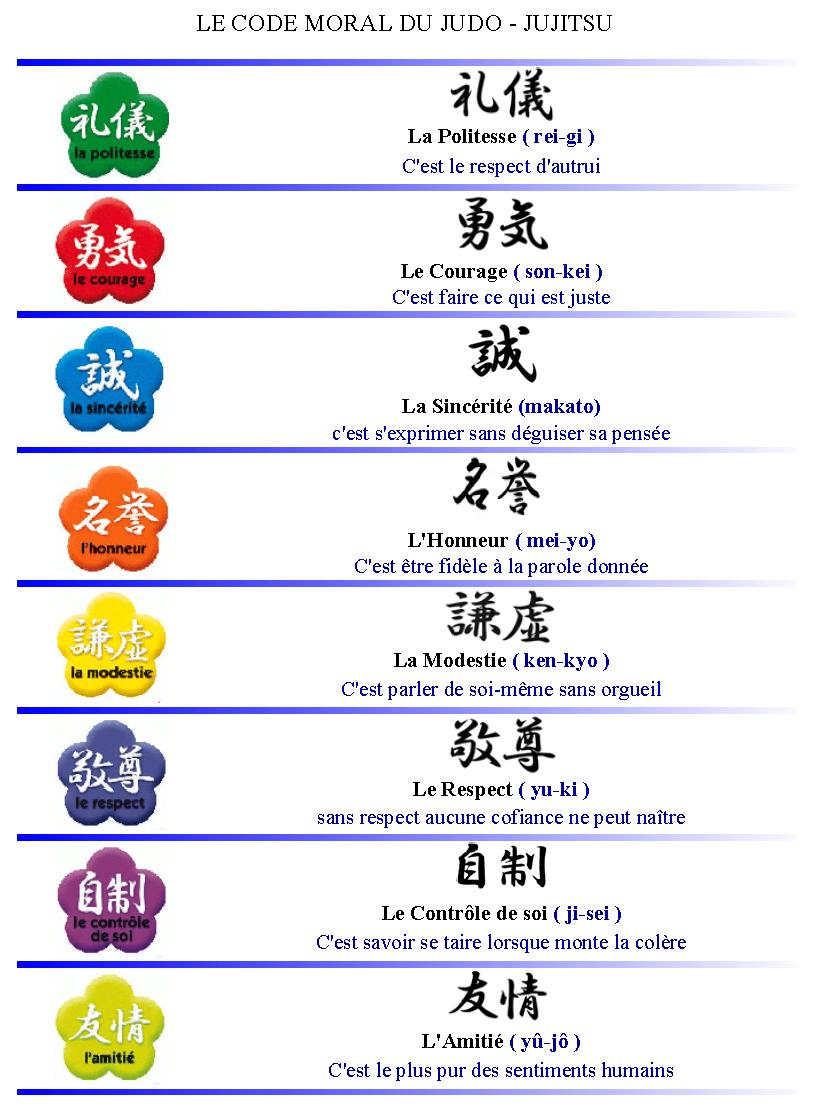kc1 wrote:Can anyone shed light on the source and original meaning of the 'Judo Moral Code' often referred to? The reason for asking is the apparent variation in the terms and kanji used.
For example here in a US website, and here in the UK (at Nic Fairborther's widely respected resource for kids), and indeed in an IJF page, here, the terms used are Courtesy, Courage, Friendship, Honesty, Honor, Modesty, Respect, Self-Control, whereas in the [apparently more widely promoted] French language sites that google found me, the translated terms - and kanji - are both different. Most notably, 'Sincerity' in used in place of 'Honesty'. e.g.here, here, and here.
Even in an EJU presentation, here, (an EJU 'Judo for Peace project' presentation'), there seems to be other kanji.
...so I'm interested to know what is the original source of this moral code and whether scholars here can shed some light on or offering interpretation.
I would also love a definitive answer on this.
The Judo Québec Site has this version:
http://judo-quebec.qc.ca/a-propos/qu-est-ce-que-le-judo/quest-ce-que-le-judo/ (Scroll down to see CODE D’HONNEUR DU JUDOKA)
1.La politesse : c’est respecter l’autre. {Politeness / Courtesy}
2.Le courage : c’est faire ce qui est juste. {Courage}
3.La sincérité : c’est s’exprimer sans déguiser sa pensée. {Sincerity}
4.L’honneur : c’est être fidèle à la parole donnée. {Honor}
5.La modestie : c’est parler de soi-même sans orgueil. {Modesty}
6.Le respect : c’est faire naître la confiance. {Respect}
7.Le contrôle de soi : c’est savoir taire sa colère. {Self Control}
8.L’amitié : c’est le plus pur des sentiments humains. {Friendship}
They credit the list to the French Federation. {Fédération Française de Judo et de Disciplines Associées}
I always suspected this came from the French and that they just made it up, because I've never come across anything to this effect in Kano's writings.
As far as I can determine, the two guiding principles of Judo that Kano promoted were "Seiryoku-Zenyo" and "Jita-Kyoei" roughly translated as "Best use of energy" and "mutual benefit".
Taken together, expanded and elaborated upon as Kano did, they make for a fine technical and philosophical approach to Judo.
I'm not saying there's anything wrong with any of the values in the new "Moral Code" except that to me it was an unnecessary exercise. If one truly understands the full implications of Jita-Kyoei and lives and breathes sincere reiho in their judo then it covers most of what is listed. To me there is more value in really exploring Kano's two precepts, than trying to retro-fit another 8 onto his work.
Just looking at "Mutual benefit" as a concept. We need at least two people to practice judo, to be fair both should take it in turns to be tori and uke. To practice effectively so that both benefit requires cooperation, mutual respect and a degree of courtesy. Through the course of our practice we must at least be friendly to each other, if not outright become friends. We will need to display patience and self-control to get past the inevitable rough spots that come from throwing, holding, locking and choking each other. That already covers 1, 3, 6, 7 and 8. I could go on but you get the picture. Why eight values when two will do?





